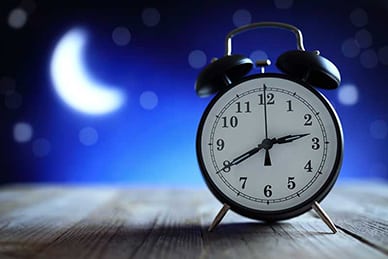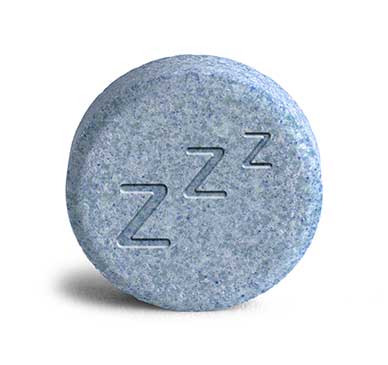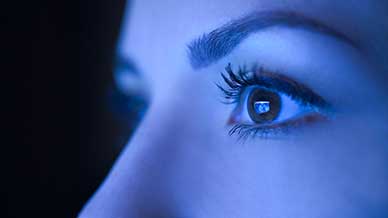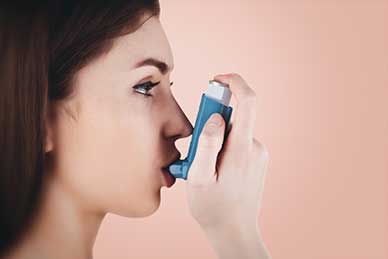Millions of Americans suffer from insomnia. This common concern may be affecting our health in a variety of negative ways, according to new research on insomnia and heart disease.
Most of us have suffered from at least a short bout of insomnia: You lay awake in bed for hours, watching the clock as a morning of exhaustion draws ever closer. Other people fall asleep quickly but are awakened so often that they do not feel rested in the morning. Insomnia is a temporary problem for most of us, but for some, it is a daily struggle. Not only does this leave insomniacs fatigued, but it also can increase the chance of developing serious illness. According to new research, there is a link between insomnia and heart attacks, heart disease and stroke.
Insomnia: A Modern Pandemic
 Why do modern people struggle to get the sleep they need? For some, anxiety and stress are the root cause. Others may simply be more sensitive to the light pollution around us. Several popular medications can also make it difficult to fall and stay asleep. There are so many reasons to stay awake at night that it is a wonder any of us are sleeping well.
Why do modern people struggle to get the sleep they need? For some, anxiety and stress are the root cause. Others may simply be more sensitive to the light pollution around us. Several popular medications can also make it difficult to fall and stay asleep. There are so many reasons to stay awake at night that it is a wonder any of us are sleeping well.
Whatever the reason, insomnia can have huge and negative effects on our lives and our bodies. People who do not get enough sleep are usually fatigued and unable to function optimally the next day. They score more poorly on tests of memory and mental aptitude; they are more likely to have accidents such as motor vehicle collisions. In addition, a lack of sleep means higher levels of inflammation in your body and less cell repair. Over time, this can have serious health effects.
Insomnia and Heart Disease
According to new research, our hearts suffer when we don’t get enough sleep. Heart failure is a disease in which our hearts lose the ability to effectively pump blood through our circulatory system. Almost three-fourths of people with heart failure have a long history of insomnia, suggesting that there is a link. In fact, having insomnia increases our risk of developing heart failure by 300 percent. Insomnia also increases the rate of heart attacks. Women appear to be disproportionately affected by insomnia.
 The heart is not the organ that can suffer when people do not get enough sleep. Having insomnia leaves people at a 54 percent increased risk of having a stroke, in which the blood supply to the brain is compromised enough to kill delicate brain tissue. Strokes can have lifelong effects such as paralysis, loss of ability to care for oneself and loss of mental faculties. This increased risk is heightened in young people, who have an eight times greater chance of stroke when they suffer from insomnia.
The heart is not the organ that can suffer when people do not get enough sleep. Having insomnia leaves people at a 54 percent increased risk of having a stroke, in which the blood supply to the brain is compromised enough to kill delicate brain tissue. Strokes can have lifelong effects such as paralysis, loss of ability to care for oneself and loss of mental faculties. This increased risk is heightened in young people, who have an eight times greater chance of stroke when they suffer from insomnia.
Why Do We Need Sleep?
Why do people with insomnia suffer from so many negative health effects? They miss out on the restoration that happens when we are dreaming. Our cells perform important “cleanup” work when we are sleeping, getting rid of waste products and repairing the damage from the day. People who do not get enough sleep are not getting enough of this important behind-the-scenes cleanup. Like a house that is not maintained, their bodies slowly fall into disrepair that can compromise the health of the overall structure.
The result is that people who do not get enough sleep have higher levels of inflammation and greater amounts of cytokines and other molecules that cause inflammatory reactions. They do not repair DNA as effectively. Over time, these effects can lead to long-term damage to muscles that make up the heart as well as delicate blood vessels. When these tissues break down, heart disease and stroke are the unfortunate results.
Getting the Sleep You Need for Good Health
These links between insomnia and cardiovascular disease show how important it is to get the right amount of sleep. However, this is a struggle for many people. If you are having trouble falling asleep and staying asleep, consider the following natural treatments for insomnia:
- Keep a routine. Go to sleep and wake up at the same time, even on weekends and vacations.
- Practice good sleep hygiene. Use your bedroom only for sleep and sex. Consider implementing a night time routine that calms you and prepares your mind to shut down.
- Turn down the lights. Lighting, especially the blue lighting from devices, keeps your brain from making hormones such as melatonin that encourage sleep.
- Keep a restful sleeping space. Invest in comfortable sheets and pillows. Make sure the decorations in your bedroom are restful and calming to you.
- Avoid caffeine, nicotine and other stimulants in the hours before bedtime.
- If stress is keeping you awake, practice yoga or meditation an hour before bed to calm your anxiety level.
- Consider taking a natural supplement intended to help with occasional sleeplessness, such as melatonin.
- Avoid using sleeping pills and antihistamines like diphenhydramine to sleep. These create dependence and also leave you groggy in the morning.
Getting enough sleep can be difficult in the modern world. Lights and stress never go to sleep, so it is hard for our brains to do so. However, it is important to maintain habits that allow you to shut down and get the rest you need to be happy and healthy. Maintaining a stable sleep schedule is one of the most important lifestyle choices that a person can make to encourage whole body health.
 There are many downsides to the medications available on the market to help people sleep. Sleeping pills can sedate you and make it difficult to wake up in the morning or in the case of an emergency. Accidental overdose is a very real and worrisome possibility as well. This is especially true for people with respiratory diseases such as asthma. Sleeping pills can be addictive or habit-forming as well. People who use them may find that they work at first, but that the effects become smaller and smaller. People who try them often find themselves taking increasing amounts of sleep medications to get the same or even smaller effects.
There are many downsides to the medications available on the market to help people sleep. Sleeping pills can sedate you and make it difficult to wake up in the morning or in the case of an emergency. Accidental overdose is a very real and worrisome possibility as well. This is especially true for people with respiratory diseases such as asthma. Sleeping pills can be addictive or habit-forming as well. People who use them may find that they work at first, but that the effects become smaller and smaller. People who try them often find themselves taking increasing amounts of sleep medications to get the same or even smaller effects. Artificial light is ubiquitous in the modern world. Not only do light bulbs and other artificial lighting sources
Artificial light is ubiquitous in the modern world. Not only do light bulbs and other artificial lighting sources  People who are exposed to high levels of blue light on a regular basis are more likely to suffer from a variety of vision problems. You have probably noticed that you suffer from eye strain after reading from a screen for an extended period of time. However, this is just the beginning. High exposure to blue light has also been found in
People who are exposed to high levels of blue light on a regular basis are more likely to suffer from a variety of vision problems. You have probably noticed that you suffer from eye strain after reading from a screen for an extended period of time. However, this is just the beginning. High exposure to blue light has also been found in  Melatonin may be a potential treatment for helping to soothe anxiety, especially anxiety that comes with occasional difficulty falling asleep and other sleep concerns. Melatonin has long been noted to decrease anxious behaviors in research animals, even as far back as 1984. Researchers noted that animals who had higher levels of melatonin showed
Melatonin may be a potential treatment for helping to soothe anxiety, especially anxiety that comes with occasional difficulty falling asleep and other sleep concerns. Melatonin has long been noted to decrease anxious behaviors in research animals, even as far back as 1984. Researchers noted that animals who had higher levels of melatonin showed  People with asthma have
People with asthma have  There are several natural supplements that also may be beneficial for people who suffer from asthma and other respiratory concerns. Omega-3 fatty acids are currently the supplements with the most evidence backing them. Research on omega-3 for asthma suggests that these fatty acids have
There are several natural supplements that also may be beneficial for people who suffer from asthma and other respiratory concerns. Omega-3 fatty acids are currently the supplements with the most evidence backing them. Research on omega-3 for asthma suggests that these fatty acids have  Many people notice that they are more likely to get sick when they are overworked or simply worn out. Scientific research supports this observation. Studies of twins have found that even among identical twins, the
Many people notice that they are more likely to get sick when they are overworked or simply worn out. Scientific research supports this observation. Studies of twins have found that even among identical twins, the  One final area that modern research suggests may be impacted by sleep is sexuality. In a study of almost 100,000 pre-menopausal and menopausal women, researchers found a
One final area that modern research suggests may be impacted by sleep is sexuality. In a study of almost 100,000 pre-menopausal and menopausal women, researchers found a